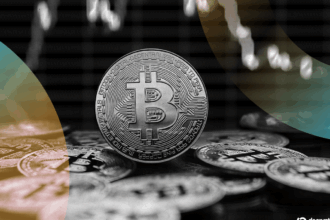Bitcoin vs. Gold: Can Cryptocurrency Replace the Age-Old Store of Value?
Academic Analysis Questions Bitcoin’s Role as ‘Digital Gold’
DECIPHERING CRYPTOCURRENCY
- Bitcoin is often termed ‘digital gold,’ a decentralized alternative to traditional precious metals.
- However, new academic research suggests Bitcoin primarily attracts speculative investors, unlike the more risk-averse holders of physical gold.
- Studies consistently find Bitcoin lacks gold’s historical stability, crisis resilience, and suitability as a reliable inflation hedge.
By Professor Andrew Urquhart
Professor Coin Column — Seventh Installment
Summary of Recent Academic Research
For centuries, gold has served as humanity’s ultimate store of value—functioning as currency, collateral, and a safeguard against economic turmoil. The past decade introduced Bitcoin, lauded by enthusiasts as its digital, decentralized successor. Calling Bitcoin ‘digital gold’ highlights its scarcity and decentralized nature.
The Case for Bitcoin as Digital Gold
A primary argument revolves around Bitcoin’s finite supply capped at 21 million coins and its fixed issuance schedule enforced by a global network of miners. Baur et al (2018) analyzed Bitcoin’s behaviour relative to gold, finding it generally aligns more with speculative assets than time-tested safe havens, reacting to sentiment and market trends rather than keeping its value during crises.
However, some research also notes Bitcoin’s potential evolution. Xu and Kinkyo (2023) observe Bitcoin offered superior short-term risk hedging during major recent events like the COVID-19 pandemic and the Russia-Ukraine war, hinting at a possible future role expansion under increasing adoption and lower volatility.
Volatility: A Sticking Point
Bitcoin’s extreme price fluctuations remain a major barrier to its safe-haven status. Unlike gold’s relatively stable history, Bitcoin’s prices can swing dramatically in short periods, casting doubt on its function as a portable store of value. Academic work by Klein et al (2018) confirms Bitcoin’s significantly higher volatility compared to gold. They suggest Bitcoin remains unsuitable for risk-averse portfolios, primarily appealing to speculators seeking upside potential rather than conservative savers.
Inflation Hedge? The Jury’s Still Out
Gold’s role as an inflation hedge over long periods is widely recognized. Research by Dyhrberg (2016) suggested Bitcoin showed some similar hedging capabilities but emphasized its recent arrival makes its reliability questionable. More recent analysis by Bouri et al (2020) found inconsistent evidence of Bitcoin being an inflation hedge; its performance seems heavily influenced by risk appetite and market sentiment alongside inflation trends.
Institutional Adoption and Changing Correlations
The integration of Bitcoin through ETFs and growing institutional ownership prompts research into changing market dynamics. Corbet et al (2019) indicated Bitcoin’s correlations may evolve, decoupling during hype cycles but correlating with risk assets during crises – a behavior fundamentally different from gold, which tends to act as a diversifier.
Conclusion: Complement, Not Substitute—Yet
Current academic evidence concludes Bitcoin cannot yet replace gold. While sharing attributes like scarcity and decentralization, Bitcoin lacks gold’s unparalleled historical track record, demonstrable stability during previous crises, and broad acceptance as a trust anchor.
However, Professor Urquhart acknowledges Bitcoin’s journey is ongoing. With institutional backing, maturing infrastructure, and potentially rising acceptance (though not yet neutrality toward its volatility), Bitcoin might eventually develop characteristics closer to gold. Nonetheless, in its present state, the research suggests, crypto king and the precious metal serve distinct investor needs.
Further Reading
- Baur, D. G., Hong, K., & Lee, A. D. (2018). Bitcoin: Medium of Exchange or Speculative Assets? Journal of International Financial Markets, Institutions and Money.
- Xu, L., Kinkyo, T. (2023). Hedging effectiveness of bitcoin and gold: Evidence from G7 stock markets. Journal of International Financial Markets, Institutions and Money.
- Corbet, S., Lucey, B., Urquhart, A., Yarovaya, L. (2019). Cryptocurrencies as a financial asset: A systematic analysis. International Review of Financial Analysis.
- Klein, T., Pham, T. Q., & Walther, T. (2018). Bitcoin is not the New Gold – A comparison of volatility, correlation, and portfolio performance. International Review of Financial Analysis.
- Dyhrberg, A. H. (2016). Bitcoin, gold and the dollar – A GARCH volatility analysis. Finance Research Letters.
- Bouri, E., Jain, A., Roubaud, D., & Kristoufek, L. (2020). Cryptocurrencies as hedge and safe haven: New evidence from a multivariate quantile analysis. Journal of International Financial Markets, Institutions and Money.












